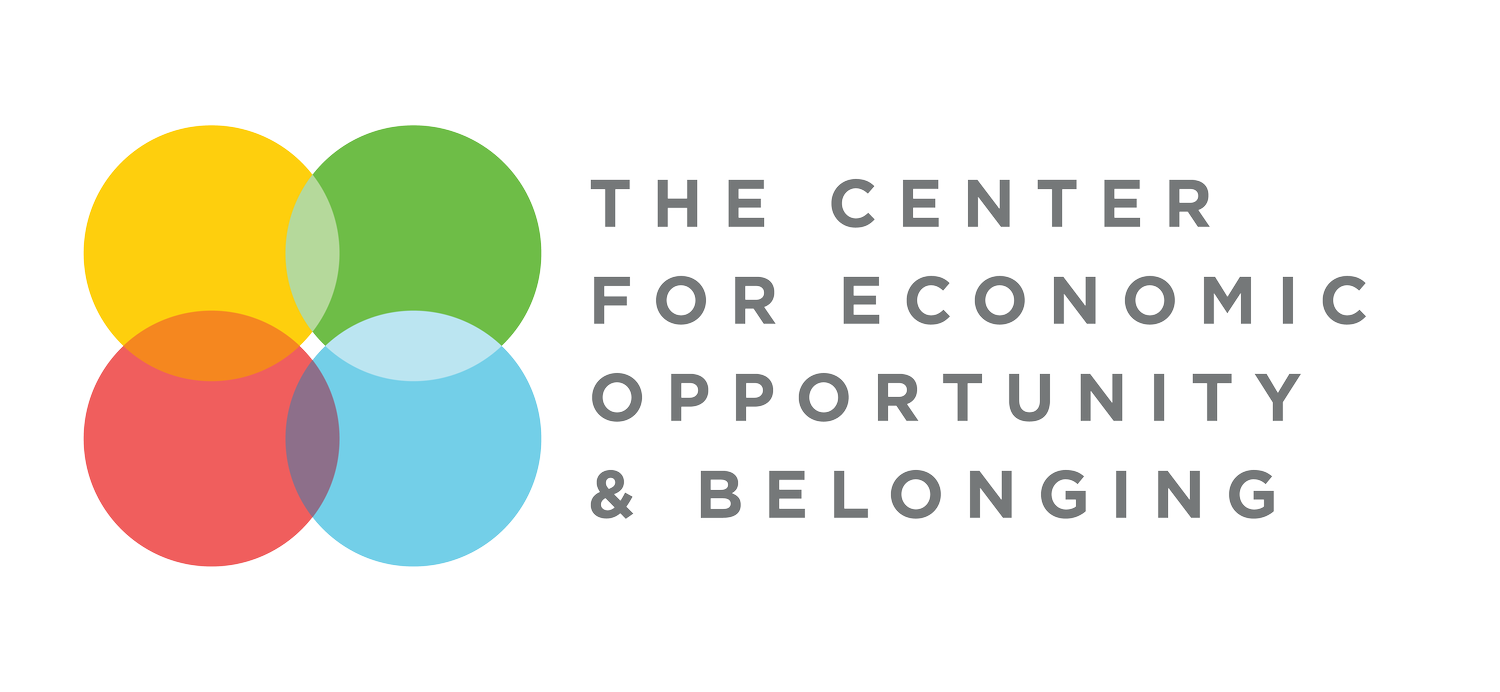Thought Piece: The Othering & Belonging Conference: Belonging Without Othering
By: The Center for Economic Opportunity & Belonging’s Team
Recently, The Center had the opportunity to attend the Othering and Belonging Institute at UC Berkley’s “Othering & Belonging Conference: Belonging without Othering.”
The underlying theory proposed at the conference, and espoused by Institute Director and author john powell, is that “Othering” refers to the categorizing of people or groups based on perceived differences and viewing them as separate from the collective (Belonging without Othering).
The core issue of inequality stems from the process of "othering"—categorizing people based on differences like religion, race, ethnicity, and more—and the solution lies in fostering a sense of "belonging". Current diversity and inclusion initiatives often fail as they inadvertently perpetuate divisions (Belonging without Othering).
In his new book Belonging Without Othering, Professor john powell proposes a shift towards an inclusive concept of belonging and advocates for embracing expansive identities and inclusive community-building, without segregating 'others'. This shift is crucial in countering rising authoritarianism and is vital for building equitable societies and possibly saving the planet.
Team Takeaways from the Conference:
Rob- “Othering” is not a new concept to me, but I especially appreciated how the conference made me think about how this process manifests across all demographics and categories; it’s certainly not just one political party or ideology. I think this type of self-reflection is important to our work and can help us better realize a sense of Belonging that does not require any of us to feel Othered.
Bailey- One big takeaway from the conference for me was the importance of embracing “radical empathy” when connecting with others. We live in a facade of connectivity and our reality is that we aren’t truly connecting with others. We’ve forgotten how to talk, connect, and empathize with others (or maybe these are skills we just never had?). It honestly is scary to take steps to connect with others, especially those we may perceive as “the other,” but doing this is not only important for our own personal growth, but also for OUR future. When we all are truly connected, we are powerful and are more equipped to collectively face the issues going on in our world. “True democracy doesn’t start with elections, it starts with conversations (john a. powell at the Othering & Belonging Conference: Belonging without Othering).”
Zee—The Othering and Belonging Conference reaffirmed our commitment to bridging. Rapid global change is producing collective anxiety and fragmentation that we have not seen for a long time. These anxieties lead to fear, anger, and othering. It is critical that we shift our reactions from fear to optimism and hope. Bridging and bonding are two tools we can use to achieve this goal. According to professor john a. powell, bridging includes building empathy, belonging, and inclusion, and bonding is building connections based on our similarities and common threads of identity. At the Center, we are committed to building a society where we can achieve belonging without othering.
How can people get involved?
Thank you to the Othering & Belonging Institute for an insightful and grounding conference. We at the Center are excited to continue this journey of building belonging in Utah and look forward to working with many different partners across the state. We encourage everyone to watch the conference here to learn more about the movement of “Belonging without Othering”. Get connected to the Center’s work by following us on socials and subscribing to our newsletter here.

